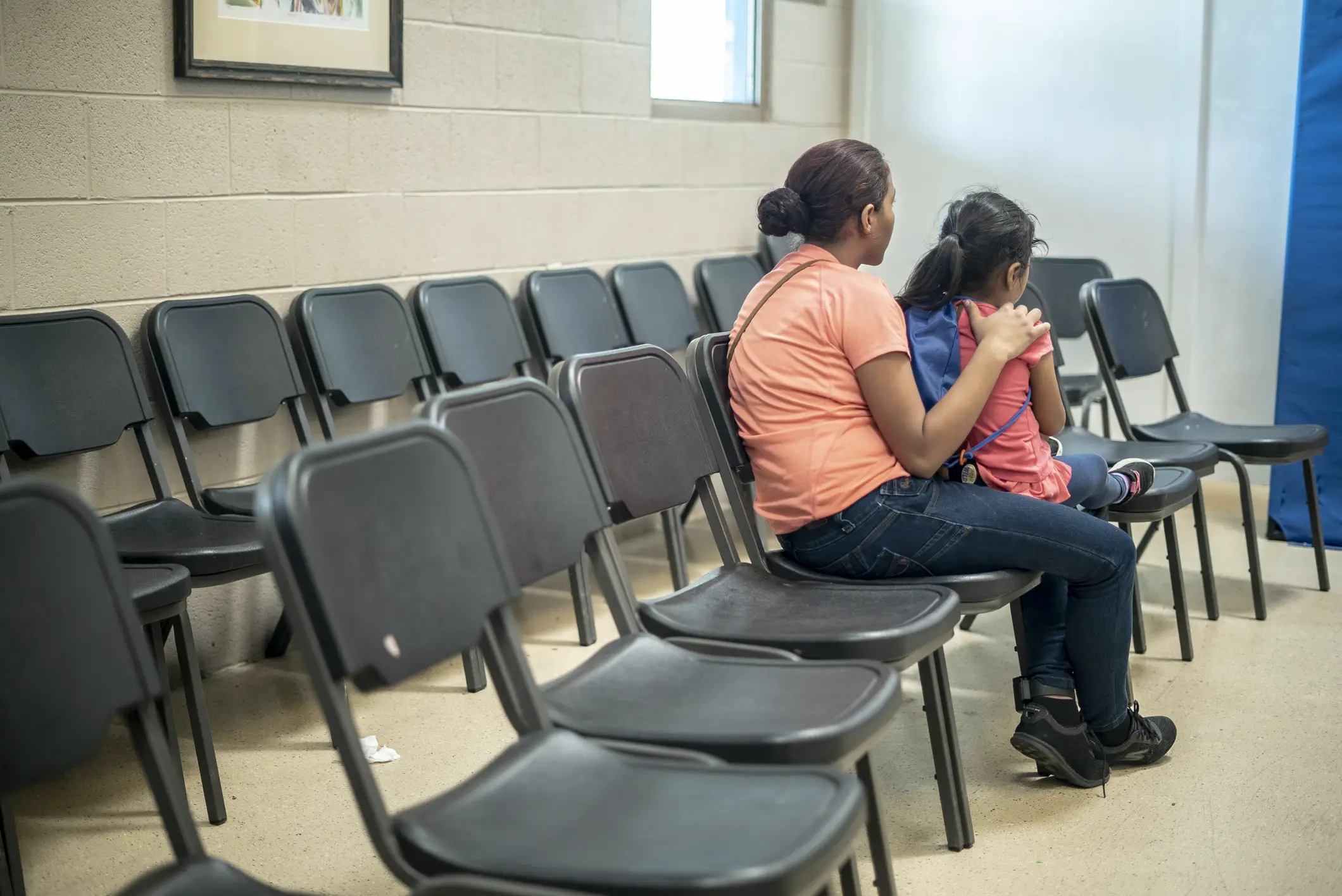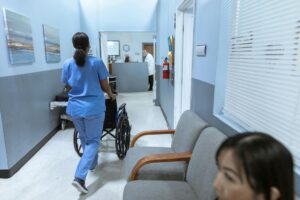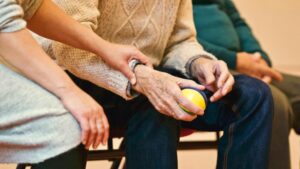Refugees and newcomers are survivors of violence, persecution, and other complex situations that arise before and during resettlement. Refugee and newcomer clients may, at times, be exposed to sexual and gender-based violence. This blog post shares service provider resources on these topics, which can be used for adult and youth clients. For resources on protection from fraud and scams, see the Federal Trade Commission (FTC) handbook and posters on how to spot, avoid, and report scams, and Switchboard’s guide to Reporting Scams and Fraud to the Federal Trade Commission. For resources on community safety and crime, see Switchboard’s blog Meeting Newcomers’ Protection Needs Part I. The external resources contained in this blog post represent the views and opinions of their original creators and do not necessarily represent the views or opinions of Switchboard.
Sexual and Gender-Based Violence
- The Office on Violence Against Women (OVW) provides guidance and resources on four focus areas: domestic violence, dating violence, sexual assault, and stalking. The OVW also maintains a local resource directory to locate resources for survivors of domestic violence and sexual assault in your state. Resources on this list may also include training and education for service providers regarding interpersonal violence, gender-based violence, substance abuse, and safety planning. *Refugee-serving organizations may apply for grants through this site to become OVW programming providers.
- The National Domestic Violence Hotline is available to support survivors via call, chat, or text (in English or Spanish). Their website offers educational resources to help identify abuse, including presentations on abuse in different cultural contexts, as well as safety planning and guidance on supporting others experiencing domestic violence.
- Love is Respect operates a hotline and website with resources aimed at teen and young adult relationships, including educational resources about dating, healthy relationships, and personal safety.
- Switchboard’s archived webinar Fundamentals of Gender-Based Violence (GBV) for Refugee Service Providers: The What, Why, and How of Safety Planning and accompanying guide shares tips and examples, demonstrating how to develop a safety plan with refugees and newcomers who have experienced gender-based violence. Additionally, Switchboard produced an evidence summary answering the question, What works to prevent and respond to intimate partner violence among refugees?
- The International Rescue Committee (IRC) produced e-learning courses on Responding to Intimate Partner Violence in Resettlement, Asylum and Integration Settings and Safety Planning in Resettlement, Asylum and Integration Settings that can help prepare direct service providers to support clients who have experienced gender-based violence.
- The Ethnic Minorities of Burma Advocacy and Resource Center (EMBARC) has created videos in nine different languages on Preventing Sexual Assault.
Female Genital Mutilation/Cutting (FGM/C)
- U.S. Department of Justice, Office of Public Affairs shared a press release on February 6,, 2023, for the 12th annual International Day of Zero Tolerance for Female Genital Mutilation (FGM), including information about FGM in the U.S. context and a national hotline number for reporting FGM/C.
- For the International Day of Zero Tolerance for Female Genital Mutilation, The United Nations Population Fund (UNFPA) and United Nations Children’s Fund (UNICEF) released advocacy and key messages flyers in English, French and Arabic, that can be shared with clients and communities at greater risk for FGM/C.
- The U.S. Department of State published government fact sheets on Female Genital Mutilation/Cutting that have been translated into seven languages.
- Bridging Refugee Youth and Children’s Services (BRYCS) hosts several resources on the topic of Female Genital Cutting, including a backgrounder, client-facing handbook, and fact sheets for practitioners.
- Michigan’s Health and Human Services Department has produced a short video on Female Genital Cutting outlining what it is, where it is practiced, who is affected and what can be done.
- The FGM/C Educational Toolkit was produced as a collaboration between RAHMA and the Miliken Institute School of Public Health at George Washington University. The toolkit is an online resource for survivors, health care providers, and community members.
LGBTQ+ Resources
- InReach operates a website and app that matches LGBTQ+ refugees, asylum seekers, and other immigrants with safe, verified, LGBTQ+ friendly resources. Resources include, but are not limited to housing, legal, health, and community support. Information is available in multiple languages including English, Spanish, French, Russian and Arabic.
- The LGBT National Help Center offers free and confidential peer support, information, and local resource directories. They offer multiple hotlines including specialty hotlines for youth, seniors and coming out support. Hotlines are staffed by volunteers offering peer-support and are available in English.
- The Trevor Project provides a safe space for youth to make friends with other LGBTQ+ identifying youth. They also offer information and a crisis hotline staffed with trained counselors for LGBTQ+ youth experiencing suicidal ideation. The hotline is available in English, via phone, webchat, or text.
- The Network/La Red is a survivor-led, social justice organization that works to end partner abuse in LGBTQ+ communities. They provide education and support services as well as a 24-hour hotline, supporting LGBTQ+ individuals experiencing partner abuse.
Child Protection
- Bridging Refugee Youth and Children’s Services (BRYCS) offers resources for refugee service providers working with children and includes topics such as anti-trafficking, bullying, child welfare, and female genital cutting. Their e-learning course Preventing Child Maltreatment in ORR-/DCS-Funded Care Provider Programs is available in English and Spanish.
Child Sexual Abuse
- The U.S. Committee for Refugees and Immigrants (USCRI) Afghan Behavioral Health Support Program recently published a flyer for newcomer children and caregivers about body safety and consent (available in English, Dari, and Pashto) as well as a guide for adults including caregivers, teachers and service providers to teach children appropriate personal and relationship boundaries. The program also provides services directly to Afghan newcomers experiencing behavioral health concerns.
- The National Child Traumatic Stress Network (NCTSN) hosts an expansive resource library for service providers working with children and families experiencing trauma. For those interested in learning more about child sexual abuse, they offer fact sheets, info guides, webinars and other tools.
Forced Marriage
- The Tahirih Justice Center’s Forced Marriage Initiative provides education, help for individuals, and numerous resources including toolkits, videos, and webinars. A recent webinar, Supporting Individuals at Risk of Forced Marriage: Guidance for Refugee Service Providers, and guide, Identifying and Responding to Forced Marriage in Refugee Communities, may be of particular interest.
Child Abuse and Neglect
- Childhelp provides resources, support, and evidence-based programs and services to children who have been abused, neglected, or at risk.
- Child Welfare Information Gateway provides a list of organizations across the country dedicated to preventing child abuse and neglect.









